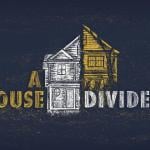PLUS A SURPRISING NUMBER OF FOXY CHICKS: In case people are wondering what the June 10 Love Won Out conference was actually like (since I didn’t really have space to describe it in the NRO piece), here are my general impressions.
The conference was held in Immanuel’s Church; I got the impression, though I could be wrong, that this is a predominantly black church. The crowd seemed to be about 1/3 Immanuel’s members. The rest of us were a big old mix: ex-gays, parents of gay children, neutral-to-hostile observers, and same-sex attracted teens or young adults with their moms.
Security was tight-ish. There was a small crowd protesting outside at the start of the conference, organized by Equality Maryland I believe. My purse was searched. The searchers uncovered my big Rive Gauche bottle and held it up skeptically, like it might be a tear gas canister. “…It’s perfume,” I explained. In a sad defeat for the forces of irony, I was not barred from the conference due to the single girliest item I own. (…Well, okay, second-girliest after that one Evanescence CD.) Anyway, I got my creepy red hospital bracelet to mark me as an official attendee. (This bracelet served, all day long, to remind me that even though I am really pretty chill about my sexual orientation these days, I still have a lot of “issues”–every time I saw it on my wrist I felt marked-out, on display, defensive and slightly shamed. I wish I had kept it.)
The conference was on a weird emotional disconnect, from my perspective. You’re bathed in love-and-acceptance talk–and there’s lots and lots of stuff about how Christians have mistreated gays in the past, how the churches also need to change, “The ground is level at the foot of the Cross,” etc. These reminders actually got a lot of applause and “amen”s from the crowd, too, so hooray for that. But then there were so many things said that left me feeling angry or bewildered or humiliated or helpless. The undercurrent was very bad, at least as I perceived it.
And sometimes it was unclear who the intended audience was. I completely understand that parents whose children come out want a safe space to talk about their pain and confusion. But if I felt kind of awful listening to people talk about how their hearts were “shattered” by their children’s coming out, how parents feel like they’re in mourning (which maybe explains all the people I’ve known whose parents said variations on the theme of, “You’re dead to me”), I can barely imagine how some 16-year-old with his mom sitting next to him would feel.
Basic impressions of the speakers I saw: Joseph Nicolosi: Not very Scripture-y, presented himself as the voice of scientific reason, definitely the most adamant that he knows everything there is to know about the origins of homosexuality. He vexed me, I tell you what.
Mike Haley: Awww, he was sweet. I got no beef with Haley’s testimony, which is all he did at the conference. I did take issue with some stuff he said in my follow-up interview with him, but that’s in the NRO article.
Melissa Fryrear: Good things: She did say that “singleness is also blessed” and Scriptural, that you don’t have to feel bad about not being married. Plus, she pointed out that everyone’s situation is different and the Nicolosi-esque “origin stories” don’t explain everything or everyone. And in her presentation of the family dynamics that can, in her view, cause lesbianism, she emphasized that these dynamics can be “real or perceived”–working hard to make neither parents nor children feel like they were being blamed. She also said–to much applause–that the Christian who made the biggest impression on her when she was still a lesbian “put homosexuality on the back burner,” presenting Christ as her Savior first rather than talking about her sexuality. It is not my impression that the ex-gay movement, in general, actually takes this approach.
Not so good: Well, obviously, my mom doesn’t fit into any of her categories. (Dispassionate, doormat [keep in mind that again, this is focused on the child’s perception of the mother, not necessarily the reality], my-best-friend [i.e. trying to be a “pal” instead of a mother], manipulative, domineering, and self-consumed. People who know my mom are probably gaping at the thought that any of these would apply to her.) Plus, there were all kinds of squicky half-jokes about how we could tell she was a “healed woman” because she was wearing skirts and talking about shopping. I did not know Jesus had a position on high heels. From what I’ve heard from people who have been in ex-gay therapy, this salvation-through-pantyhose plan is a big thing, and I don’t rightly get it a’tall.
Bill Maier: Gay people are insane in the membrane. Gay guys and lesbian ladies are prone to depression, alcoholism, suicide, and the heartbreak of psoriasis. I already ranted about some of the (many!) reasons this approach unimpresses me here. I’ll try to write more about it later if I can get my thoughts in order. Maier said a bunch of stuff I disagreed with, but honestly, it makes me tired just thinking about it, and was all culture-wars stuff rather than personal or specifically ex-gay, so I’m not going to bother, really.
Joe Dallas: The good: He pointed out that the Bible does not give an “origin story” for homosexuality, “and there is wisdom in that.” Emphasized that parents shouldn’t force their kids into counseling unless the kid’s behavior is “immediately life-threatening and totally out of control.” Had a good balance between the parents’ concerns and the kid’s fears.
He did say that it was fine for parents to say stuff like, “I’m hurt that you’re gay,” or “I’m disappointed.” I know I have Issues around some of this stuff, but I cringe like crazy when I hear that. I don’t see why your kid needs to know that (and frankly, if it’s true, I suspect your kid knows anyway). When he talked about his own father’s reaction, he said his father started with “I love you,” I respect your integrity and your ability to make this decision, and ended by saying, basically, don’t push me to agree with you because I won’t. That strikes me as radically different from, “Well, I love you, but this is a huge disappointment to me.” Sometimes it’s good to hide your feelings from your kids, you know?–and find adults with whom you can sort them out. …Anyway, Dallas also said that parents should ask themselves, “God, what are you trying to change in me?” To the extent that you can, that is not a bad question to ask yourself in any really hard situation in your relationships with others.
So that’s who was there.











